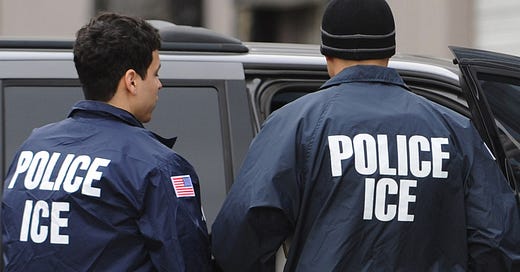A week ago, I offered some thoughts on how the relationship between the US Catholic bishops and the incoming second Trump administration might develop, particularly in light of Donald Trump’s campaign promise to carry out “mass deportations” of undocumented immigrants. I noted that the bishops had maintained a cordial relationship with the Trump administration the first time around while nevertheless issuing harsh criticisms of certain immigration policies, particularly the family separation policy implemented in 2018. If mass deportations of some form are carried out, or if a Trump Department of Justice takes legal action against Catholic charities for aiding migrants, akin to the suit brought by Texas Attorney General Ken Paxton against Annunciation House in El Paso, then, I argued, the bishops may need to re-think their stance toward the administration and their strategy for opposing unjust policies.
I don’t know if anyone who works at the United States Conference of Catholic Bishops (USCCB) subscribes to Window Light, but comments made by the bishops at their annual fall meeting in Baltimore this past week suggest that they have put some thought into the sorts of questions I raised about the next four years.
In an address to his fellow bishops, Archbishop Timothy Broglio, the President of the USCCB, expanded substantially on comments he made shortly after the recent presidential election in an interview with EWTN in which he had suggested that the bishops’ commitment to the poor and vulnerable, including migrants, would not change under the new administration. At last week’s meeting, Broglio explained:
We must insist on the dignity of the human person from womb to tomb, be unstinting in our commitment, as I said yesterday, to see Christ in those who are most in need, to defend and lift up the poor, and to encourage immigration reform, while we continue to care for those in need who cross our borders.
He then added:
We certainly do not encourage illegal immigration, but we will all have to stand before the Throne of Grace and hear the Lord ask us if we saw Him in the hungry, thirsty, naked, homeless, stranger, or sick and responded to His needs.
Broglio’s appeal to Matthew 25 reportedly inspired widespread applause among the bishops.
Likewise appealing to the dignity of the person “from womb to tomb,” at a press conference, Bishop Robert Barron of Winona-Rochester, Minnesota, the Chair of the USCCB’s Committee on Laity, Marriage, Family Life, Bishop Thomas Daly of Spokane, Washington, the Chair of the Committee on Catholic Education, and Bishop Michael Burbidge of Arlington, Virginia, Chair of the Committee on Pro-Life Activities, announced the USCCB’s plans to implement the teachings of the Vatican’s recent document on human dignity, Dignitas Infinita. The plans include efforts to include the document’s teachings in Catholic school curricula and materials integrating those teachings with the Church’s teachings on sexuality (including the thorny issue of gender).
If the US Catholic Church’s social mission is guided by Matthew 25 and a consistent commitment to human dignity, without consideration for partisanship, that would be a promising start. The challenge, of course, is what this means in practice.
Keep reading with a 7-day free trial
Subscribe to Window Light to keep reading this post and get 7 days of free access to the full post archives.




